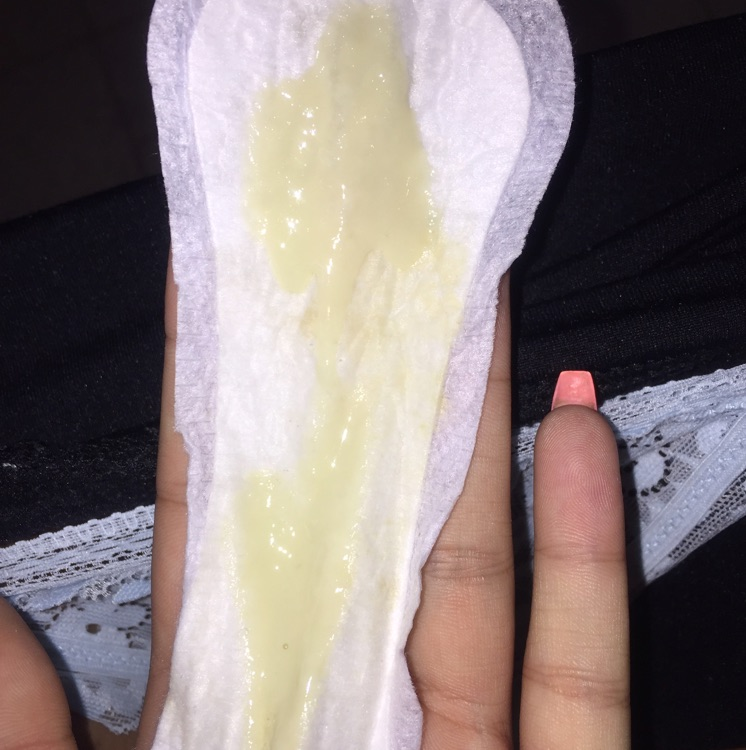Vaginal discharge is not a very pleasant sight, but you have to notice the discharges as they can tell you a lot about your health. The milky, white vaginal discharge is experienced by many women and most of the time it is normal. Vaginal discharge is the fluid produced in the vagina to carry away the bacteria and dead cells. This prevents vaginal infection and keeps it healthy. However, the colour and the odour of the discharge change from woman to woman. You will experience the discharge few days before menarche (before a woman starts on her periods for the first time) when you are sexually aroused or ovulating. The odour will change if you had been neglecting personal hygiene or if you are pregnant. There are several others reasons for white discharge.
Common Reasons for White Discharge:
- Infection of female genital organs
From Fungus – it can easily flourish in moist circumstances and is commonly promoted by synthetic undergarments and poor hygienic condition
From Parasites- Trichomonas vaginalis causes the trichomoniasis which spreads usually through sexual intercourse and moist clothes
From Bacteria: Gardnerella vaginalis and chlamydia are the prime causes of bacterial infections. Also, it is commonly seen in venereal diseases like gonorrhoea, syphilis, and AIDS.
- Pregnancy
A woman may notice a milky white discharge from her vagina as one of the early symptoms of pregnancy which is related to the thickening of the vagina’s walls, which starts almost immediately after conception. The reason for white discharge during pregnancy is the increase growth of cells lining the vagina.
This is normally harmless and generally doesn’t need any treatment unless there is a bad smell, burning and itching sensation related to the discharge.
- Extreme emotions
Vaginal infections are fairly common from stress, anxiety, work pressure and sexual anxiety. The vagina is filled with healthy and unhealthy bacteria, and generally, they are in a perfect balance to maintain vaginal good health. But when you are psychologically distressed, your stress may decrease your body’s ability to sustain this balance, and vaginal white discharge may be the outcome.
Other Reasons
- Poor hygienic conditions, particularly during periods, can create infection and cause vaginal discharge.
- Diabetes, anaemia, and tuberculosis may provoke infections due to weakened immunity among many females.
- Excessive use of stimulants, e.g., tea, coffee, alcohol, and smoking can be one of the reasons for white discharge.
- Injury to the vagina or womb during childbirth, abortion, or excessive sexual activity can cause infections with discharges.
Vaginal discharge can become a chronic condition or severe infection if it is left untreated or ignored for a long time. In cases of inflammation or infection, your doctor may prescribe you antibiotics to reduce symptoms and kill bacteria or calm the tissue. Antibiotics use, however, may lead to antibiotic-resistant bacteria in your body and also disturb the good and bad bacterial balance. Furthermore, they do not work with your immune system to keep recurrences at bay as they indiscriminately kill the bacteria that your immune system should be killing with great discretion.
Homeopathy is a more holistic approach of dealing with the disorder. Homeopathy potentially works by maintaining the hormonal balance and boosting our body’s immune system to overcome the infection. The medicine helps to control infections, ease the stressful complaints, hold-up recurrence and avoid complications. Here are some self care tips which can aid you.
Self Help Tips
- Wash genitals every day with mild soap
- Wear clean undergarments every day. Always wear cotton underwear to avoid moisture
- Avoid wearing synthetic or nylon garments which retain dampness in the groins
- Abstain from sexual intercourse during heavy discharges and during the process of healing to avoid irritation of tissues
- Avoid use of Sprays, deodorants, and strong perfumed soap and bath products
- Avoid Stress since it may affect the hormonal level and may increase secretions
- Don’t Share towels and garments
- Eat a nutritious diet, especially food rich in vitamins A, B, C, and E, magnesium, and zinc, to improve general health.
- Drink plenty of water and juices to avoid urinary tract infection and its spread to the vagina or cervix.

